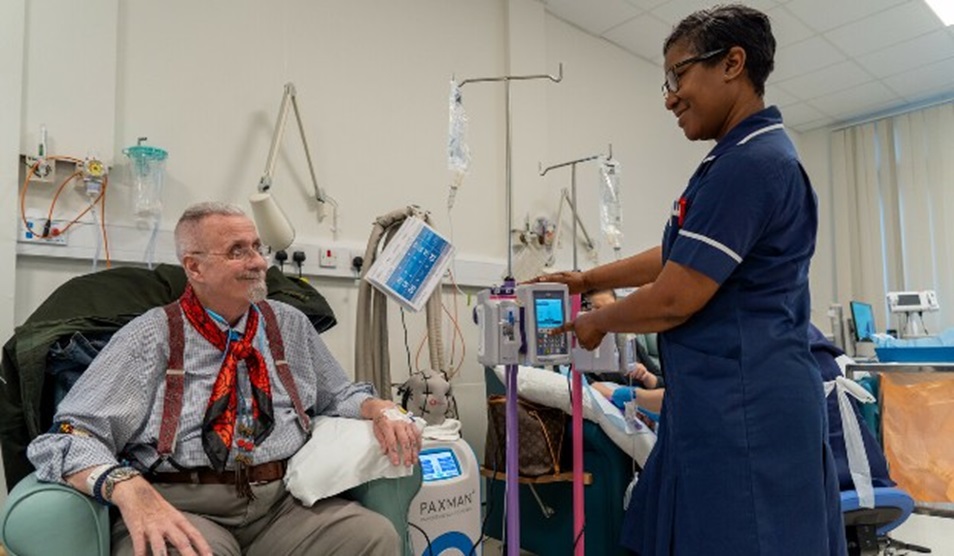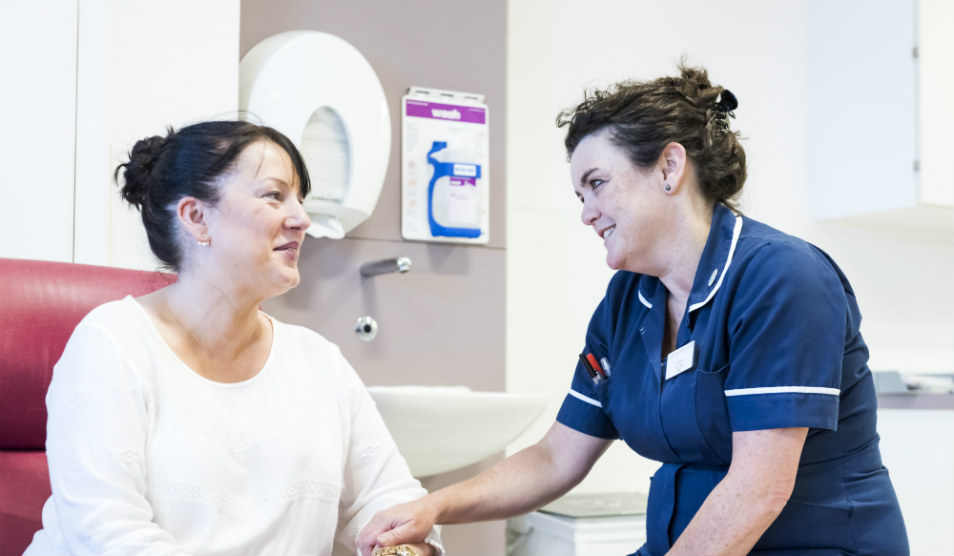Gynaecological cancer
Contact
- General Enquiries
- 020 3311 1234
Visitor Information
Translation help:
To translate this page into your preferred language, click the Google Translate icon in the top-right menu and select your desired language.
We are an accredited cancer centre for the treatment of women with gynaecological cancer including cancer of the cervix, ovary, vagina, vulva and womb (uterus). We have a team of leading clinicians with expertise in the management of gynaecological oncology.
We are able to offer a range of highly specialist surgery including radical abdominal trachelectomy in invasive cervical cancer for tumours too large to be considered for vaginal trachelectomy (an operation to remove cancer from the cervix retaining fertility), laparoscopic cancer surgery, and extensive radical techniques for advanced and recurrent cancer.
We also treat patients with chemotherapy and radiotherapy depending upon individual treatment plans.
Clinics
Gynaecological cancer clinic at Charing Cross Hospital
Address
Clinic 8
First floor
Clinic block
Charing Cross Hospital
Fulham Palace Road
London W6 8RF
Hours
A clinic for urgent referrals and follow-up is also held at Charing Cross Hospital on Friday mornings. This clinic also sees patients who are jointly cared for by the West London Gynaecology Cancer Centre team and the national gestational trophoblastic disease (GTD) centre.
Contact information
Phone: 020 3313 5118 – administrative team
Phone: 020 3313 0303 – specialist nursing team via Macmillan navigator service
Gynaecological cancer clinic at Queen Charlotte’s & Chelsea Hospital
Address
Gynaecology outpatients
Ground floor
Queen Charlotte’s & Chelsea Hospital
Du Cane Road
London W12 0HS
Hours
The cancer (oncology) clinic is held on a Monday morning at Queen Charlotte’s & Chelsea Hospital.
Contact information
Phone: 020 3313 8164 – nurse station
Phone: 020 3313 5118 – administrative team
Phone: 020 3313 5291/0303 – specialist nursing team via Macmillan navigator service
Meet the team
Consultant gynaecological oncologists
Professor Christina Fotopoulou
Mr Joseph Yazbek
Mr Srdjan Saso
Ms Stacey Bryan
Associate specialist in gynaecological oncology
Ms Chiara Landolfo
Consultant clinical oncologist
Dr Ed Park
Dr Muzamil Asif
Consultant medical oncologists
Dr Jon Krell
Prof Iain McNeish
Dr Laura Tookman
Clinical nurse specialists (CNS)
Janine McCormack
Valerie Ng
Eva Loboue
Rong Fu
Lauraun Green
CNS team can be contacted via Macmillan navigator service on 020 3313 0303 (Monday to Friday, 9am to 4.30pm excluding Bank Holidays) or email: ICHC-tr.gynaeoncologycns@nhs.net
Multidisciplinary team coordinator
Paul Low
Patient pathway coordinator
Nina Rana
Patient information
Your appointment
It is imperative that you attend your first appointment. Please be aware some investigations are essential prior to us providing appropriate and safe treatment option.
We encourage you to bring a partner, relative, close friend or carer to your appointments, as you will need to discuss your condition, which could mean discussing good or bad news.
All patients who need a gynaecological examination will have a chaperone – this could be a friend, but can also be a hospital worker.
Please wear comfortable loose-fitting clothes, as you may need to undress in order for some investigations or examinations to be performed.
Check your appointment letter for anything specific you may have been asked to take. In general it would be helpful if you could bring the following:
- your full address and telephone number(s)
- your appointment card and appointment letter
- your GP’s name and address
- money to pay for any prescriptions, or an exemption card
- a list of questions you may want to ask your consultant
- a list of current medication
If you have any communication or cultural needs, please make us aware prior to your appointment so we can have appropriate staff available.
During your appointment
When you arrive please make your way to the clinic as directed in your appointment letter and check in with the receptionist.
You may be asked to see a variety of doctors and nurses during your first appointment at the clinic, so you will likely be at the centre for several hours.
Where possible we will try to organise all your tests, examinations and consultations to take place during one visit to try to avoid the need for multiple visits to the hospital. However, we will always give you the opportunity to go away and think about things before making a decision on appropriate treatment.
You may have a gynaecological examination and blood tests as needed based upon your symptoms.
Please note that we are a teaching hospital, so medical students may be present for some appointments. If you do not wish to have them in the room please let the nurse or doctor know and the students will be asked to step outside.
After your appointment
You will be given the details for the next steps which may involve further tests or treatment. You may also be seen by a specialist nurse who will help coordinate your care.
After your appointment, clinicians will follow up with you and keep you updated of any developments.
Patient information leaflets
- Gynaecological abdominal and pelvic surgery
- Gynaecological cancer health and wellbeing clinics
- Nurse-led telephone follow-up clinic for early-stage endometrial cancer
- Nutrition and Ovarian Cancer
- Open access follow-up (OAFU) for gynaecological cancer
- Surgery for Vulva Cancer
- Urgent Suspected Cancer (USC) pathway
Additional information
Clinical trials and research
We offer women with gynaecological cancer the opportunity to enter appropriate local, national and international research studies. These studies include new ways to diagnose cancer, new treatments such as novel targeted therapies against specific tumours or new surgical procedures, new ways of delivering care, and understanding and improving patient experience. All research studies are voluntary.


